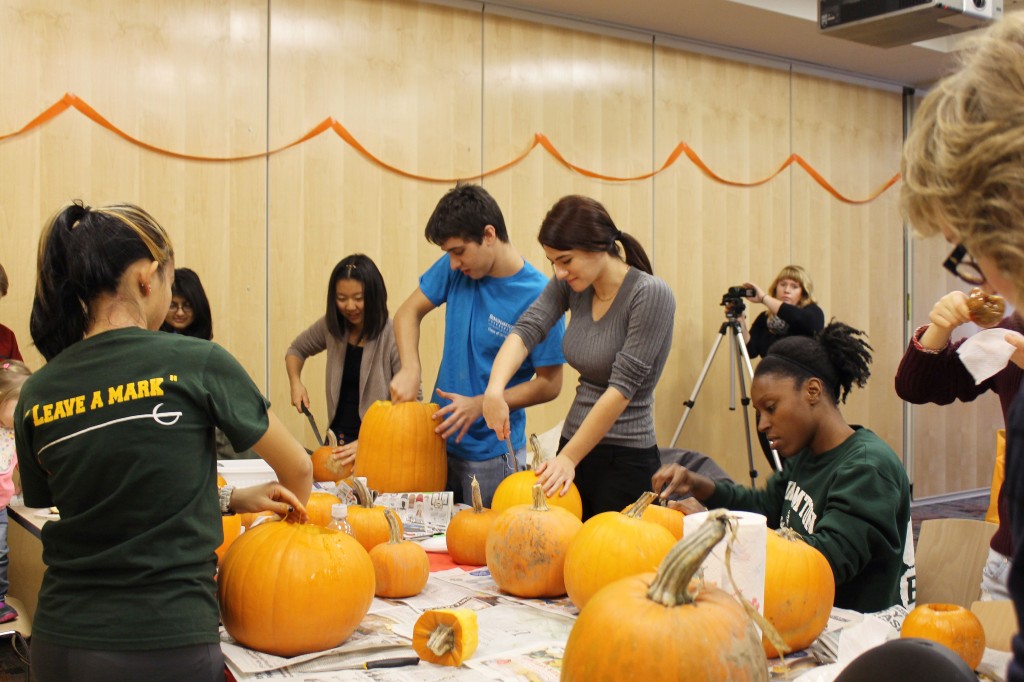
Members of the Emerging Leaders Program (ELP) are putting their leadership skills to work combating hunger in Broome County and beyond, one sustainable bite at a time.
ELP is a one-semester program that aims to hone first-year students’ leadership skills. The event was a result of a collaboration between the Global Awareness and Citizenship branch of ELP and CHOW, the Community Hunger Outreach Warehouse.
Program participants went to the Chenango Champlain Collegiate Center Multipurpose Room with stations that provided information about food sustainability around the world, from Africa to New York City and the Binghamton area.
Learning stations run by students included Jeopardy, where all questions were centered on universal food awareness, a game of “Two Truths and a Lie” that had multiple sets of facts regarding domestic matters, and a trivia game that tested students’ knowledge on global hunger. The winners of the games received prizes such as gift cards to Dunkin’ Donuts, Applebee’s and Sweet Frog.
The Jeopardy station quizzed participants on hunger issues in places across the world like Africa, Asia and the United States. Questions included “What is the leading cause of hunger in Africa?” and “What accounts for malnutrition across the country and world at large?”
Two Truths and a Lie focused on domestic issues and local food and sustainability problems, like the fact that 45-65 percent of people in Binghamton live in the low-income range and can’t afford to buy fresh foods.
“We’re focusing on food sustainability and availability, locally and globally,” said Leor Wasser, an undeclared freshman and a member of Global Awareness. “We’re trying to raise awareness that food sustainability is a problem in many places, but there are resources to help people find nourishing foods.”
The fest also featured a pumpkin carving contest and a caramel apple-making table full of candy and other chocolate goodies.
In the weeks leading up to the Food Sustainability Fest, the students went to CHOW farms in Conklin to help plant, weed and develop new planting techniques, such as “concise planting,” which is meant to harvest the most food from each acre. According to Rachel Nader, a sophomore majoring in linguistics, practices like these are fundamental in fighting hunger.
“CHOW has gardens for sustainable agriculture for people that may not have access to healthier foods,” Nader said.
After attending the Fest, Michael Polvere, a sophomore majoring in financial economics, said he learned a lot about the prevalence and proximity of hunger.
“The number of people in America that don’t have enough to eat is overwhelming,” Polvere said. “You wouldn’t think that in such a developed country, we still have to struggle with hunger and basic necessities.”
Program participants will also be donating to The Hunger Project, a global movement with a commitment to end hunger, by hosting a fundraising event at Whole in the Wall on Thursday evening.


